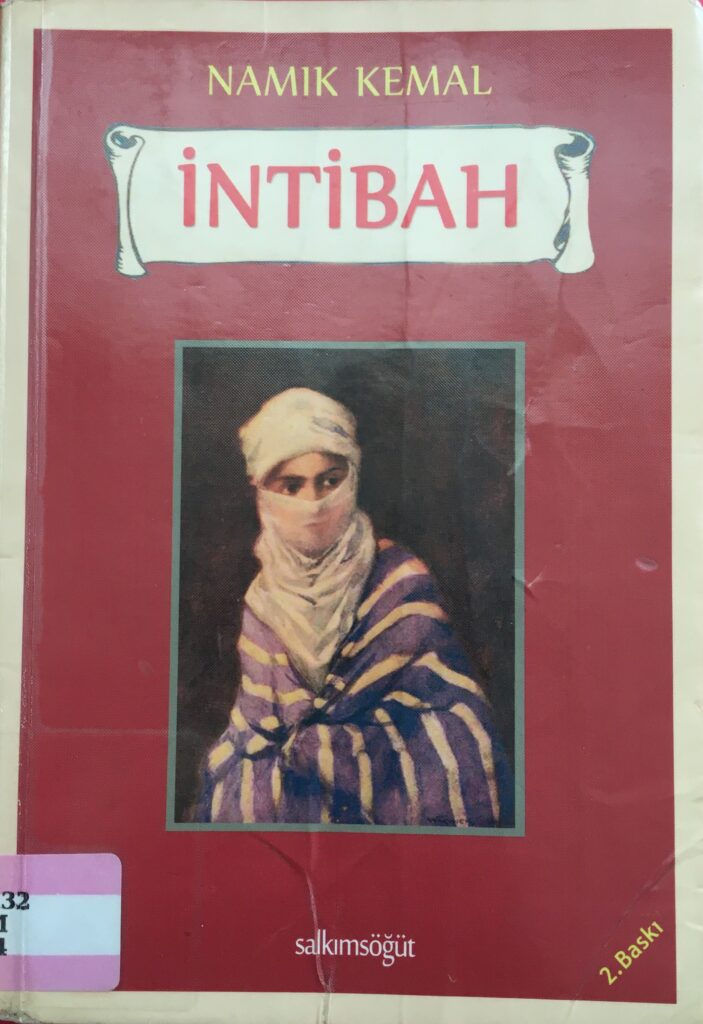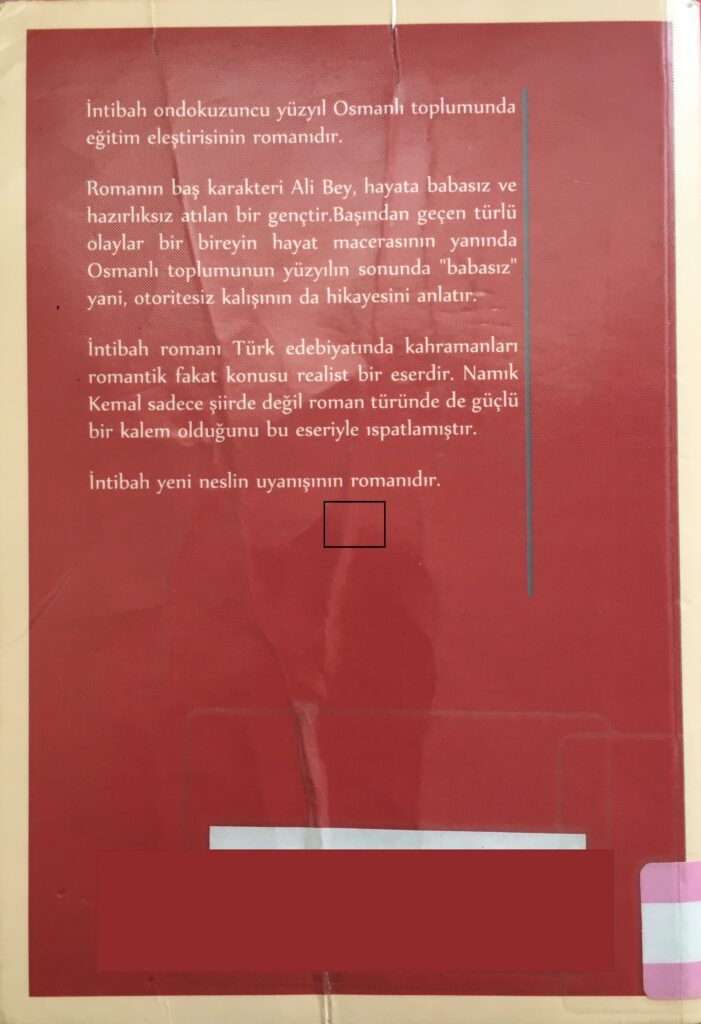Ali Bey ise o yaşa gelinceye kadar hiçbir akşam bir yerde kalmaya annesini alıştırmamış, sebepsiz bir gün daireye gitmemezlik etmemiş, yani kendi alışkanlıklarını dünyanın adeti, kendi fikrini sırf gerçek olarak kabul etmiş bir çocuk olduğundan, böyle yirmi yıllık bir ömür içinde hiç başına gelmedik bir felakete uğrayınca, o kadar telaş etti ki, haline bakılsa, ölüm derecesine gelmiş bir hastadan farkı görülmezdi. İnsan bir garip hayvandır ki her şeye alışır. Her alışmadığı şeyden korkar. Hatta bazı kere o kadar korkar ki, ölümü, (mesela) dünyada en çok geçici olduğu bilinen mutluluktan ayrılmaya bile tercih eder. (Büyük olasılıkla, ölüm korkusunun bütün insanlıkta yaygın olması da ölümün, bir kişiye bir kere geldiği için alışkanlık yaratmamış olmasındandır).
As for Ali Bey, until he reached that age, he had never accustomed his mother to him staying somewhere even for a single evening. Nor had he ever, without reason, failed to go to the office for even a single day. That is to say, since he was a child who regarded his own habits as universal customs and his own opinions as the sole truth, when he encountered a disaster in this twenty-year life—something he had never experienced before—he became so agitated that, if one were to look at his state, he would appear no different from a patient at the brink of death. A human is a strange creature who gets used to everything. Yet they fear anything they are not accustomed to. Sometimes, they are so afraid that they even prefer death over parting with happiness—which is known to be the most fleeting thing in the world. (Most likely, the prevalence of the fear of death among all of humanity is because death, occurring to a person only once, does not create a habit.)
Namık Kemal - İntibah
READ & LISTEN to the PIECE
MEET the AUTHOR
Namık Kemal
🇹🇷
Namık Kemal (1840-1888) Gazeteciliğiyle toplumun fikirlerine yön veren, yazarlığıyla yeni edebiyatın kapılarını açan, mücadelesiyle Meşrutiyet’e ivme kazandıran fikir adamı, yazar ve en bilinen yönüyle vatan şairidir. Onda her şey hürriyet fikri ve vatan sevgisiyle başlar, neredeyse bütün uğraşları bu ikisi üstüne kurulmuş ve gelişmiştir.
Erken yaşta annesini kaybedince çocukluk ve ilk gençliğini büyükbabasıyla ve onun görevi nedeniyle –Sofya’dan Kars’a– yurdun çeşitli yerlerinde geçirir. İstanbul’a geldiğinde edebiyat çevrelerinde dikkat çeker ve dönemin ünlü şairleriyle tanışır, özellikle Şinasi’nin fikirlerinden etkilenir. Tasvir-i Efkâr’la başladığı gazetecilik hayatı Hürriyet, İbret, Diyojen gibi yayınlarda devam eder.
Siyasetten hukuka, felsefeden edebiyata pek çok alanda yazdığı makaleleriyle fikir dünyasına; roman, şiir, tiyatro ve tarihi biyografi türlerindeki eserleriyle yeni edebiyata öncülük eder. İstanbul’dan defalarca uzaklaştırılıp sürgüne gönderilir. Yine de yazmaya; mektuplarıyla, gazete yazılarıyla, eserleriyle çağdaşlarına yol göstermeye ve halkına ulaşmaya devam eder.
kaynak: www.iskultur.com.tr
🇺🇸
Namık Kemal (1840–1888) was a thinker, writer, and poet, most famously known as the “Poet of the Homeland.” Through his journalism, he shaped public opinion; through his writing, he opened the doors to modern literature; and through his activism, he gave momentum to the movement for constitutional monarchy. For him, everything began with the ideas of freedom and love for his country, and nearly all his endeavors were built upon and developed around these two principles.
After losing his mother at an early age, Namık Kemal spent his childhood and early youth with his grandfather, traveling across various parts of the country due to his grandfather’s assignments—from Sofia to Kars. When he arrived in Istanbul, he gained attention in literary circles and met prominent poets of the time, particularly influenced by the ideas of Şinasi. His journalism career, which began with Tasvir-i Efkâr, continued with contributions to publications such as Hürriyet, İbret, and Diyojen.
Writing in diverse fields ranging from politics to law and from philosophy to literature, Namık Kemal significantly impacted intellectual life through his articles. He pioneered modern literature with his works in novels, poetry, theater, and historical biography. Despite being repeatedly exiled and banished from Istanbul, he continued to write—guiding his contemporaries and connecting with his people through letters, newspaper articles, and literary works.
source: www.iskultur.com.tr


